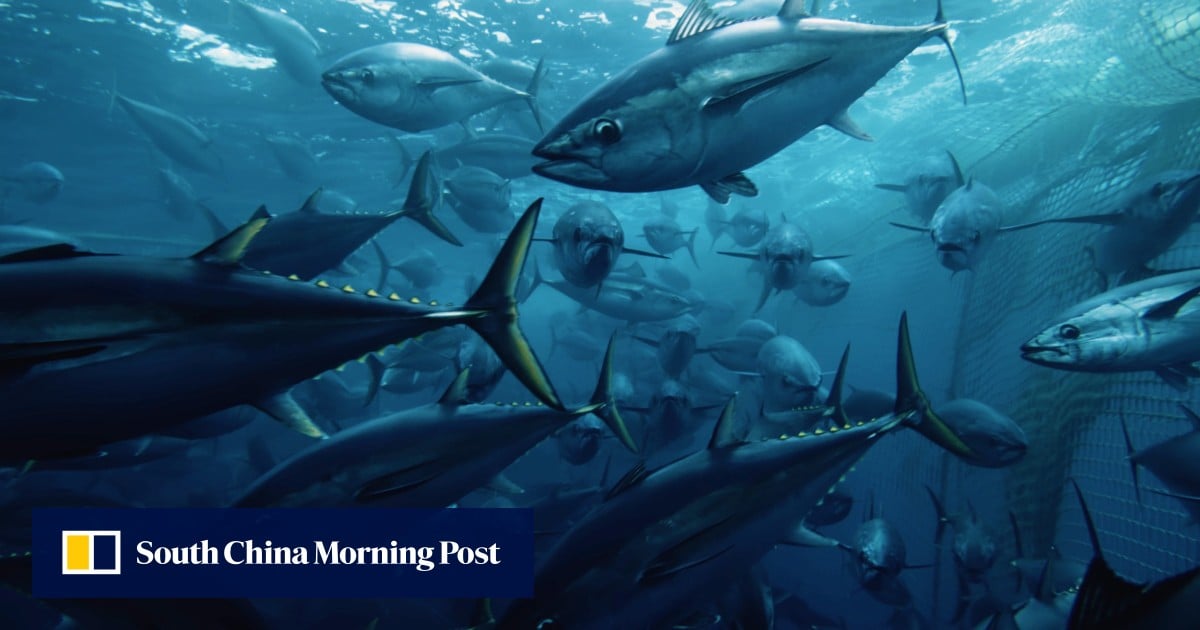Much of Richey’s work involves educating people about how apex predators such as sharks play a crucial role in the marine food chain, a challenging mission considering how they have been vilified in the media and popular culture.
‘Enlightenment of sexuality’: 5 favourite films of Eaton HK culture director
‘Enlightenment of sexuality’: 5 favourite films of Eaton HK culture director
Take Steven Spielberg’s 1975 film Jaws, where the great white shark was depicted as a giant, bloodthirsty killing machine that terrorised beachgoers at a summer resort town.
The film fed peoples’ fear of swimming in the ocean even though shark attacks, while widely publicised, are rare. It also contributed to a sharp decline in the animals’ population, a legacy Spielberg is not proud of.
“I still fear […] that sharks are somehow mad at me for the feeding frenzy of crazy sword fishermen that happened after 1975,” Spielberg has stated in interviews. “I really, truly, regret that.”
But blaming the Academy Award-winning director for a decline in shark populations might be giving the film a bit too much credit.
Overfishing in the commercial seafood industry, when fish are caught faster than they can reproduce and replenish their populations, is the biggest culprit.
1. Seaspiracy (2021)
The problem with overfishing is one of the strongest lessons in Seaspiracy, an “excellent documentary” that Richey says should be a must-watch for the whole family. (It is streaming on Netflix.)
Directed by British filmmaker Ali Tabrizi, Seaspiracy delves into the environmental impact of commercial overfishing, which is depleting fish populations at an unsustainable rate.
It also explores destructive and illegal fishing practices, corruption in the industry and how consumers have choices, the messages resonating both with Richey and the Hong Kong Shark Foundation.
“Unfortunately, commercial fishing practices such as trawling and longlining cause significant damage to our marine ecosystems and threaten the survival of many species, especially apex predators such as sharks,” she says.

2. Eating Our Way to Extinction (2021)
Exploring the environmental and ethical implications of our global food system, this documentary focuses on the impact of animal agriculture.
Narrated by British actress Kate Winslet, the film highlights the environmental damage caused by animal agriculture, including deforestation, water pollution and greenhouse gas emissions.
“It discusses how these activities contribute to climate change, biodiversity loss and habitat destruction,” says Richey. “It raises awareness and encourages viewers to take action by making informed food choices and supporting initiatives that promote a more sustainable, compassionate and ethical food system.”
Eating Our Way to Extinction is available to watch for free in 16 narrated languages on the film’s official YouTube channel.
3. The Game Changers (2018)
This film, also available on Netflix, focuses on athletes and explores the benefits – and dispels some myths – of a plant-based diet, featuring interviews with athletes including Arnold Schwarzenegger, scientists and other experts who discuss the impact of plant-based eating on physical performance, health and the environment.
“I especially like that it challenges cultural perceptions of masculinity and meat consumption, suggesting that plant-based diets can be just as, if not more, conducive to strength and athleticism,” says Richey, a vegan.
4. Earthlings (2005)
This thought-provoking documentary, narrated by actor Joaquin Phoenix, seeks to raise awareness about the exploitation of animals in factory farming, fur farming, animal testing, circuses and the pet trade.
Showing the harsh and cruel conditions in which animals are kept, Richey says what the documentary does best is invite viewers to take action to protect their rights and well-being.
“Earthlings serves as a justified call to action for animal-rights advocacy and promotes the idea of adopting a vegan or vegetarian lifestyle as a way to reduce animal suffering and promote a more compassionate world,” says Richey.
5. Cowspiracy: The Sustainability Secret (2014)
Cowspiracy: The Sustainability Secret explores the environmental impact of animal agriculture including deforestation, water depletion and greenhouse gas emissions. It argues that animal agriculture is a leading cause of deforestation, habitat destruction, and species extinction.
While the film primarily focuses on environmental concerns, Richey says dangerous health implications of consuming animal products – increased risk of heart disease, diabetes and certain cancers – makes it a film that everyone needs to watch. (It is also streaming on Netflix.)

